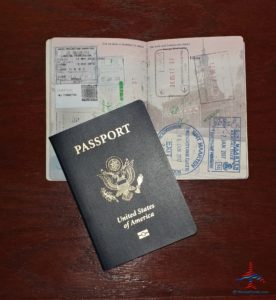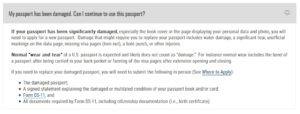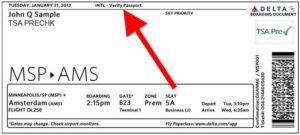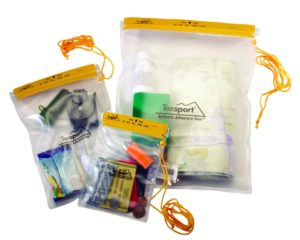Advertiser Disclosure: Eye of the Flyer, a division of Chatterbox Entertainment, Inc., is part of an affiliate sales network and and may earn compensation when a customer clicks on a link, when an application is approved, or when an account is opened. This relationship may impact how and where links appear on this site. This site does not include all financial companies or all available financial offers. Opinions, reviews, analyses & recommendations are the author’s alone, and have not been reviewed, endorsed, or approved by any of these entities. Some links on this page are affiliate or referral links. We may receive a commission or referral bonus for purchases or successful applications made during shopping sessions or signups initiated from clicking those links.
Welcome to a regular feature on the Renés Points blog. This blog series covers in a “rookie” way either a Delta or travel related theme and attempts to break down to a basic level each topic. You can read up on all the previous posts HERE. Now on to this featured topic.

This week a former Miss Universe was left stranded in Bali due to her passport suffering water damage. So much so that she was not allowed to travel with it (it did not look THAT bad to me). The story grabbed my attention as I often travel with my passport in my back pocket – but should I do this? Take a look at what the US rules on passports (in part) says:

Phew. At least according to the US rules, a “bent” passport from my back pocket is AOK. But do take note that they also could dis-allow travel if it has been water damaged.
But just what is or is not a damaged passport? Are there hard and fast rules? Notice what the UK government site says:
“Definition of a damaged passport
A damaged passport is one which isn’t in a condition to be accepted as proof of identity. Damage may include the following:
-
- details are indecipherable
- the laminate has lifted enough to allow the possibility of photo substitution
- discolouration to the bio-data page
- chemical or ink spillage on any page
- missing or detached pages
- the chip or antenna shows through the end paper on the back cover for the new style e-passports
- the chip has been identified as damaged after investigation“
Between the US and UK verbiage I think we get a solid idea. Clearly governments want to make sure the document has not been tampered with or altered. Now you may not have intentionally done any of the above but that changes little.

When my boarding pass says something like “Intl-Verify Passport”, is the airline checking the condition of my passport. Not likely. They are verifying you are who you say you are. Now a good rep may bring to your attention a passport that could be considered “damaged” and I think most would appreciate the heads up.
So I think my passport is damaged. What then? Well, you are going to have to get a new one. The directions on how and where (and how long it will take) are all on the travel.state.gov website.

I will tell you this – writing the post has me thinking I need to be a little bit less causal about my passport. I do have a place in my backpack it always “lives” when I travel but now I think it is going to go inside a water proof sleeve first then I will put it where it lives! – René
Advertiser Disclosure: Eye of the Flyer, a division of Chatterbox Entertainment, Inc., is part of an affiliate sales network and and may earn compensation when a customer clicks on a link, when an application is approved, or when an account is opened. This relationship may impact how and where links appear on this site. This site does not include all financial companies or all available financial offers. Opinions, reviews, analyses & recommendations are the author’s alone, and have not been reviewed, endorsed, or approved by any of these entities. Some links on this page are affiliate or referral links. We may receive a commission or referral bonus for purchases or successful applications made during shopping sessions or signups initiated from clicking those links.










CBP cannot deny reentry to a U.S. citizen no matter how damaged the passport is (you may have a little delay, though), but if you need it for onward travel to another country you may be SOL & need to get it replaced at an embassy/consulate.
I always have 3-4 copies of my passport and as well have it on my phone and laptop
it worked when my passport was stolen a few years back
TheTherThe
Sorry for the previous “cockpit” error.
Other countries can refuse entry if, in their estimation, the passport could have been tampered with or is “not up to standards”.
I experienced a problem several years ago while entering Kazakhstan for business, a country I entered numerous times.
My passport was about six months old and I had not signed it. I used it to enter Kazakhstan three times in the same airport during those six months. The Immigration Officer asked me why my passport was not signed. My response was I didn’t realize it wasn’t signed. He made me wait a bit, then provide a sample signature which he compared to my driver’s license signature. He had me very worried needless to say. My next passport was signed within minutes of receiving it.
Regarding the note “INTL – Verify Passport” written on boarding passes is to ensure you have a visa, if required, for the final destination.
If one arrives at an airport without a visa, the airline that provided you with the flight to that country is responsible for the next flight out of the arrival country.
I’ve never experienced that but I was told by a Delta Gate Agent that it is at the airline’s cost, not the passenger.